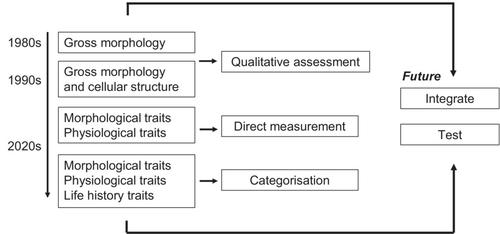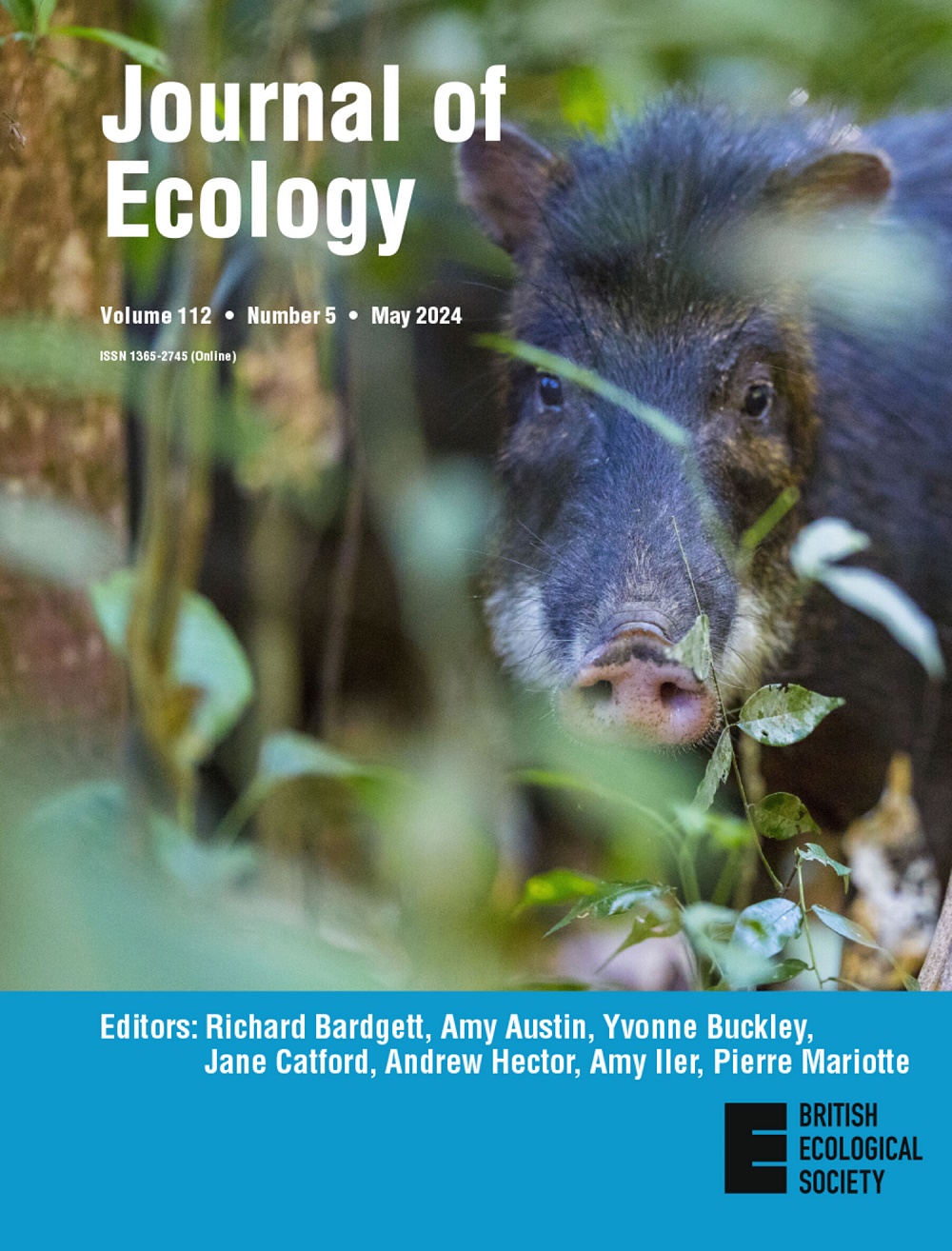分类性状在海藻功能多样性研究中的未开发潜力
IF 5.3
1区 环境科学与生态学
Q1 ECOLOGY
引用次数: 0
摘要
在本期中,Fong等人展示了分类性状的使用如何极大地加速了海藻性状生态学的进展。他们为自20世纪80年代以来发展起来的一系列方法增加了一个重要的维度,展示了分类特征如何使研究人员更容易地整合特征变异的不同方面,并暗示了在一个空白填充的特征空间中,海藻可能自然地归入不同的群体。本文章由计算机程序翻译,如有差异,请以英文原文为准。

The untapped potential of categorical traits in seaweed functional diversity research
In this issue, Fong et al. show how the use of categorical traits can greatly accelerate progress in seaweed trait-based ecology. They add an important dimension to a suite of approaches that have developed since the 1980s, show how categorical traits may allow researchers to integrate distinct aspects of trait variation more readily, and hint that seaweeds may naturally fall into distinct groups in a gap-filled trait space.
求助全文
通过发布文献求助,成功后即可免费获取论文全文。
去求助
来源期刊

Journal of Ecology
环境科学-生态学
CiteScore
10.90
自引率
5.50%
发文量
207
审稿时长
3.0 months
期刊介绍:
Journal of Ecology publishes original research papers on all aspects of the ecology of plants (including algae), in both aquatic and terrestrial ecosystems. We do not publish papers concerned solely with cultivated plants and agricultural ecosystems. Studies of plant communities, populations or individual species are accepted, as well as studies of the interactions between plants and animals, fungi or bacteria, providing they focus on the ecology of the plants.
We aim to bring important work using any ecological approach (including molecular techniques) to a wide international audience and therefore only publish papers with strong and ecological messages that advance our understanding of ecological principles.
 求助内容:
求助内容: 应助结果提醒方式:
应助结果提醒方式:


